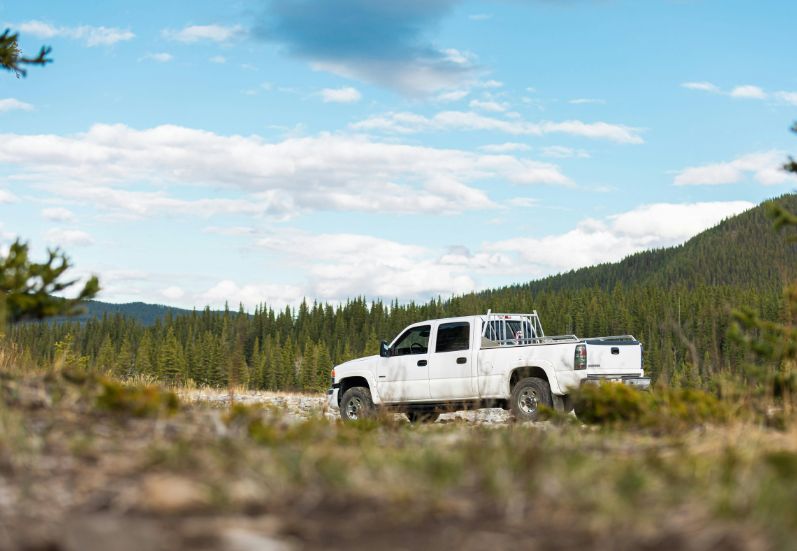
Vehicle selection matters immensely in the business setup. You might be planning to run a startup that requires a reliable mode of transportation. Or, you may be well-established company that is looking forward to keeping its fleet of vehicles at a minimum level.
Irrespective of that, there is generally one question that most people want to know: And what’s that? “Should one lease trucks or take out car loans to buy used cars?”
Both options, leasing and loans, have their respective good and bad points, and the decision is dependent on the requirements, budget, and objectives of your company.
In this post, I will walk you through the differences between leasing trucks and financing used cars to give you the knowledge that you need to decide what’s best for your business.
Understanding the Basics: Leasing Trucks vs. Taking Loans for Used Cars
First of all, before we discuss the advantages and disadvantages, we have to know the definitions of the two terms.
Truck leasing, which is the first method, consists of using the vehicle for a certain period and paying regular (usually monthly) installments that cover the vehicle’s wear and tear and the use of it.
Either at the time of contract termination or before, you have the option of buying the truck back from your leasing company. By using a truck leasing service, the customer will be given a warranty along with a care package while renting the motor vehicle.
If you are interested in the topic of leasing cars, you would probably want to know about how it’s done, the terms and the advantages available, and a lot more other helpful things through the process.
On the other hand, taking a loan for a used car means borrowing money to purchase the vehicle outright. You become the legal owner once the loan is paid off.
Monthly payments go towards repaying the loan principal plus interest. This option usually requires a down payment and involves more direct responsibility for maintenance and repairs.
The key differences?
Leasing means no ownership but lower upfront costs and regular upgrades; financing means ownership but potentially higher initial expenses and maintenance risks.
Before I begin with the distinction between leasing trucks vs. taking loans for trucking, let me explain what each of these is and how they work. So, keep scrolling…
Is Leasing a Truck Better?

Leasing a truck is quite similar to renting one: the finance charge is the cost of using the vehicle for a definite period of time (let’s say, three years).
It is in the lease period that you fulfil the driving and modification obligations towards the car.
When the lease is over, you give the vehicle back, give up the keys, and you are no longer obliged to make payments.
If the contract allows it, you may also be able to purchase a car after the lease term has expired. However, there are certain positives and negatives of this.
Pros of Leasing a Truck for Your Business
Leasing trucks can be a smart choice for many businesses, especially those prioritizing cash flow and vehicle reliability.
- Lower upfront costs: Unlike purchasing, leasing generally requires a smaller initial payment. This helps preserve capital for other business expenses.
- Predictable monthly payments: Fixed lease payments make budgeting easier and avoid unexpected expenses.
- Access to newer models: Leasing allows your business to operate newer, fuel-efficient trucks with the latest technology and safety features.
- Reduced maintenance costs: Many leases include maintenance packages and warranties that cover repairs, saving you from costly surprises.
- Tax benefits: Lease payments are often fully deductible as a business expense, potentially offering tax advantages.
Leasing offers flexibility and convenience, but it’s important to understand the conditions. Reading more about leasing new and used trucks can help you decide if this route fits your company.
Cons of Leasing a Truck
Leasing isn’t without drawbacks:
- Mileage limits: Most leases cap annual mileage. Exceeding limits results in costly penalties.
- No equity: You don’t own the truck; at lease-end, you return it without any asset value.
- Wear and tear fees: Normal use is expected, but excessive wear can trigger extra charges.
- Long-term costs: Over many years, leasing can be more expensive than purchasing, especially if you continuously lease.
Is Taking a Loan for a Truck Better?
Commercial vehicle loans are given mainly to customers like sole proprietors, trusts, partnerships, companies, etc., to purchase vehicles for their commercial or business use.
Such truck loans are mostly used by people engaged in trading or other commercial activities.
Lenders can offer thus the commercial vehicle loan for buses, trucks, tippers, tankers, light and small commercial vehicles.
Regarding the commercial vehicles, each different bank has different interest rates. The client and the vehicle segment are the two factors that lenders use to work out the amount.
Despite that, as with truck leasing, so with the truck loans, the former has its pros and cons.
Pros of Taking a Loan for a Used Car
For businesses focused on ownership and lower monthly payments, financing a used car might be appealing.
- Ownership: Once the loan is paid off, the vehicle is your asset, potentially increasing your company’s net worth.
- Unlimited mileage: Drive as much as you need without worrying about penalties.
- Lower monthly payments: Used cars usually cost less than new trucks, making loan payments more affordable.
- Flexibility: Own the vehicle outright, modify it as needed, or sell it to recoup costs.
If you’re exploring options for your business, consider checking out some great used cars under $15,000 in Canada; affordable, reliable choices that keep your budget intact while providing solid transportation.
Cons of Financing a Used Car
On the negative side, the main alternatives for purchasing second-hand cars and the accompanying trials are as follows:
- Maintenance and repair costs: Old vehicles tend to need more repairs. That is why frequent visits to a local garage can result in increased monthly expenses.
- Down payment: One has to give a big amount of money when taking a loan usually the first payment, and this greatly affects own money resources.
- Depreciation: Resold in a worse condition, second-hand cars leave the image of losing value and not being in a good economic condition behind.
- Interest payments: The vehicle becomes costlier because the loan interest, particularly with long terms and high rates, is the additional portion of the whole price.
Leasing Trucks vs. Taking Loans: Key Business Considerations to Guide Your Choice
Choosing between leasing trucks or financing used cars hinges on your business’s specific circumstances:
- Vehicle usage: If your business involves heavy hauling or frequent long-distance driving, leasing a truck designed for such tasks might be better. For lighter deliveries or occasional use, a used car loan might suffice.
- Cash flow: Leasing often requires less upfront cash but can mean higher long-term expenses. Loans demand more initial cash but can be more economical over time.
- Maintenance priorities: If you prefer newer vehicles with fewer breakdowns, leasing is advantageous. Used cars may mean more maintenance headaches.
- Business timeline: Short-term ventures may benefit from leasing flexibility. Long-term businesses might prefer owning assets.
- Tax considerations: Consult with your accountant to understand how lease payments, versus loan interest and depreciation, affect your tax situation.
Leasing Trucks vs. Taking Loans: Which Option Is Better in Real-World Scenarios?
So, by now, you know how leasing trucks vs. taking loans for trucking are different from each other. But which one is better for what?
Check this out:
- Startup delivery company: Needs reliable, new trucks to maintain professionalism and avoid breakdowns. Leasing provides low upfront costs and access to modern vehicles with warranties.
- Established business with budget limits: Prefers to own vehicles outright to build assets and avoid continuous payments.
- Seasonal business: Vehicle needs fluctuate by season. Leasing offers flexibility to adjust the fleet size and swap vehicles without long-term commitments.
Wrapping It Up!
Deciding whether to lease trucks or take loans for used cars isn’t straightforward. Both options have pros and cons depending on your business’s size, budget, usage, and goals.
Leasing offers lower upfront costs, newer vehicles, and reduced maintenance worries, but no ownership equity.
Financing used cars grants ownership and greater freedom, but comes with maintenance risks and possibly higher upfront costs.
Ultimately, the smart business move is to carefully evaluate your unique situation, consider the financial and operational implications, and seek expert advice if needed.
Whether you lean toward leasing or financing, the right vehicle will help your business keep moving forward.
Also Read:
- Understanding Loan Agreements: Key Legal Terms You Should Know
- Legal Lending Limit: What You MUST Know While Getting a Loan
- 7 Reasons Your Loan Application Was Declined











0 Reply
No comments yet.